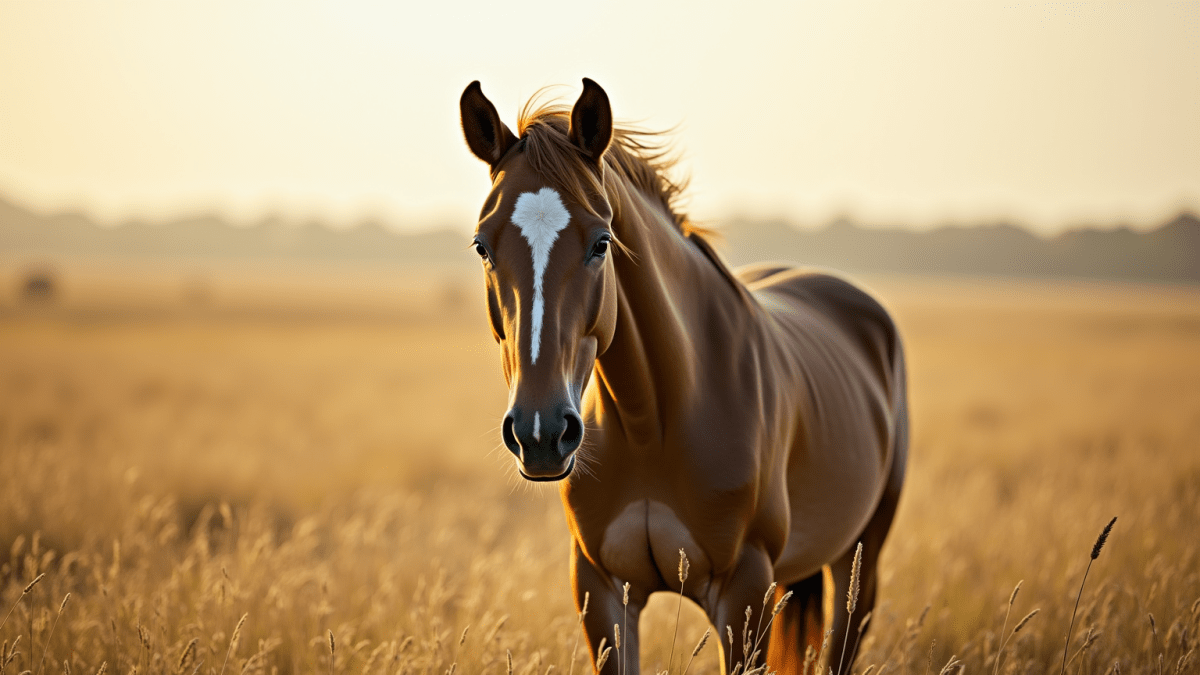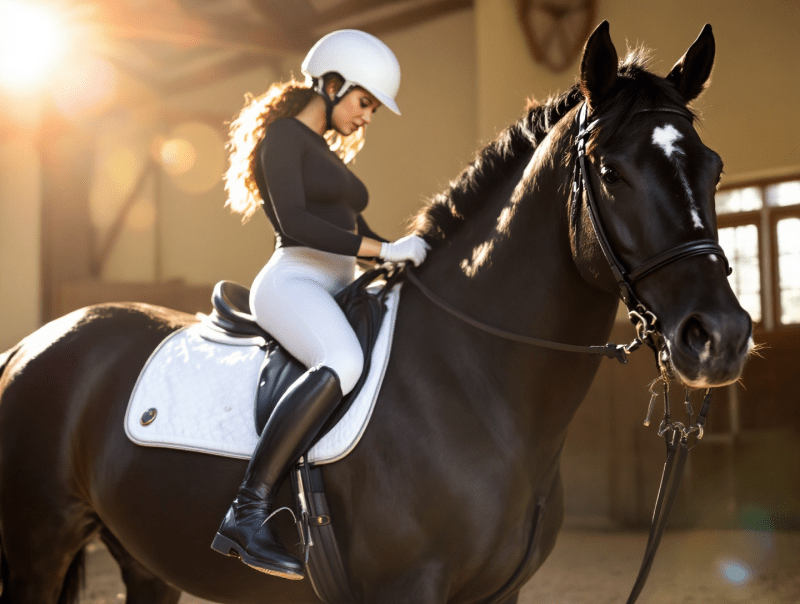Just like humans, horses can experience anxiety, and understanding what triggers it is key to helping them feel more at ease. Horses are flight animals, which means they can easily become startled or anxious about things in their environment. These triggers might include loud noises, sudden movements, or unfamiliar objects. The more you know about your horse's specific anxieties, the better equipped you’ll be to ease their worries.
Take some time to observe your horse in different settings. Notice how they react to changes in their routine, new people, or even changes in weather. Common triggers can be:
If you spot behaviors like flaring nostrils, prancing, or backing away, these could be signs of anxiety. Keeping a journal of these observations can help you connect the dots between specific triggers and your horse's response. This is a big part of the process when noticing and treating horse's anxieties.
Your horse’s anxieties can often be eased with some simple techniques. Consistent routines and exposure to triggering situations in a controlled way can create a sense of security. You'll get to know what calms your horse down, whether it’s using a favorite treat, gentle voice, or extra time to adjust to a new environment. Building trust can make a world of difference in how your horse copes with their fears.
Signs Your Horse May Be Anxious
Horses are amazing creatures, but like us, they can feel anxious from time to time. As pet owners, it’s important to be aware of the signs that your horse may be experiencing anxiety. After all, noticing and treating horse's anxieties can help improve their overall well-being and make your bond stronger.
One of the first signs to look for is restlessness. If your horse seems to be shifting their weight, pacing, or continuously moving around its stall, it could be feeling uneasy. Similarly, you might notice them raising their head higher than usual, trying to get a better view of their environment. This behavior can be a signal that something is making them uncomfortable.
Another common sign of anxiety is changes in eating habits. If your horse suddenly loses interest in their feed or starts eating less, it might be a sign that they are stressed. Also, pay attention to their body language. Horses that are anxious may pin their ears back, swish their tails, or lower their heads. These signs indicate that they are feeling threatened or uneasy about something nearby.
Excessive neighing or whinnying can also indicate anxiety. If your horse is vocalizing more than usual, they might be expressing their discomfort or trying to get your attention. Lastly, consider observing their interactions with other horses. If you see your horse isolating itself or showing aggression, it could be a sign of underlying anxiety that needs to be addressed.
Simple Tips for Easing Anxiety in Horses
By incorporating these simple tips into your routine, you can make a positive impact on your horse’s anxiety levels. Noticing and treating horse's anxieties doesn't have to be complicated – a little love and care goes a long way!
When to Seek Professional Help for Anxieties
When you're working with your horse, it's important to know that not all anxieties can be handled alone. If you notice your horse frequently displaying signs of anxiety, like constant pacing or refusing to move, it might be time to seek professional help. These behaviors are often indications that something deeper is affecting your horse's well-being.
Another sign to consider is if your horse consistently reacts negatively to certain environments or situations. For example, if they're spooking at things they used to ignore, this may indicate an underlying issue. Professional trainers or veterinarians can evaluate your horse and help identify triggers that you might not be aware of. Noticing and treating horse's anxieties can be a complex process, and getting expert advice can make a big difference.
Don’t underestimate the power of a fresh perspective. Sometimes, we get so caught up in our routines that we overlook obvious solutions. Professionals can offer training techniques or behavioral strategies tailored to your horse’s needs. Along with that, they can also check for any physical conditions contributing to anxiety. This is crucial because some hidden pain can manifest as fearful behavior.
Ultimately, if your efforts to calm your horse’s anxieties don’t seem to work, reaching out for help is a sign of being a responsible owner. It’s about ensuring your horse leads a happy, healthy life, and sometimes that means bringing in a little extra support. Remember, you're not alone in this journey, and there are plenty of knowledgeable resources out there ready to help you and your horse thrive together.



